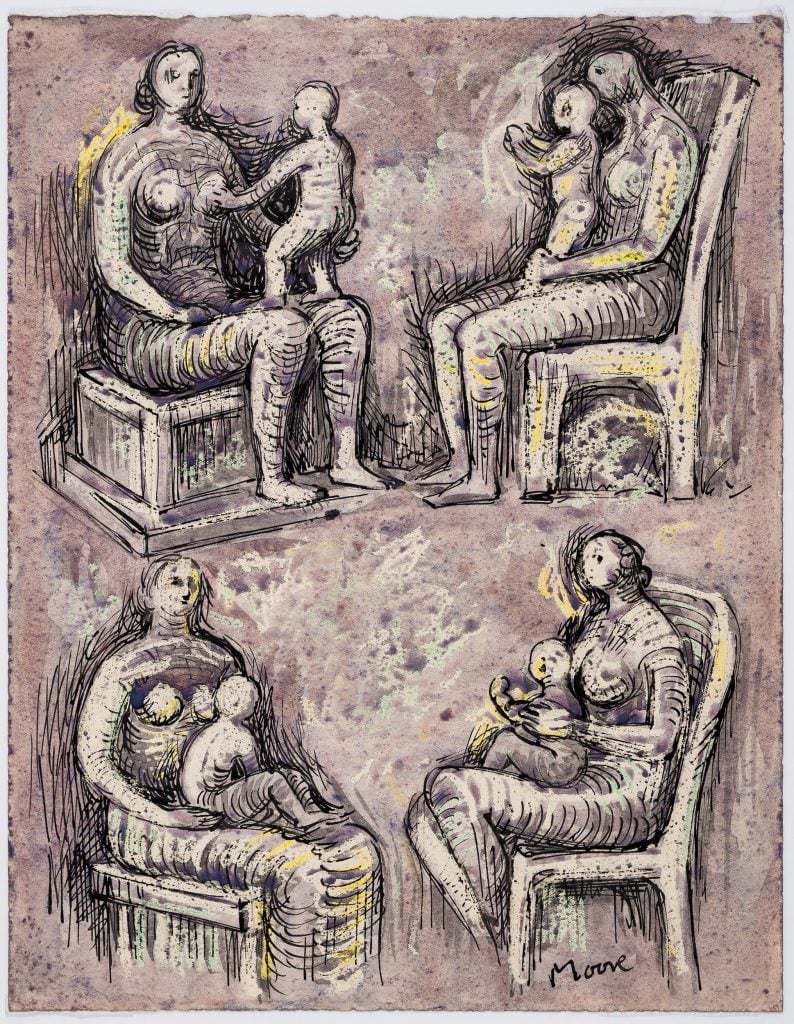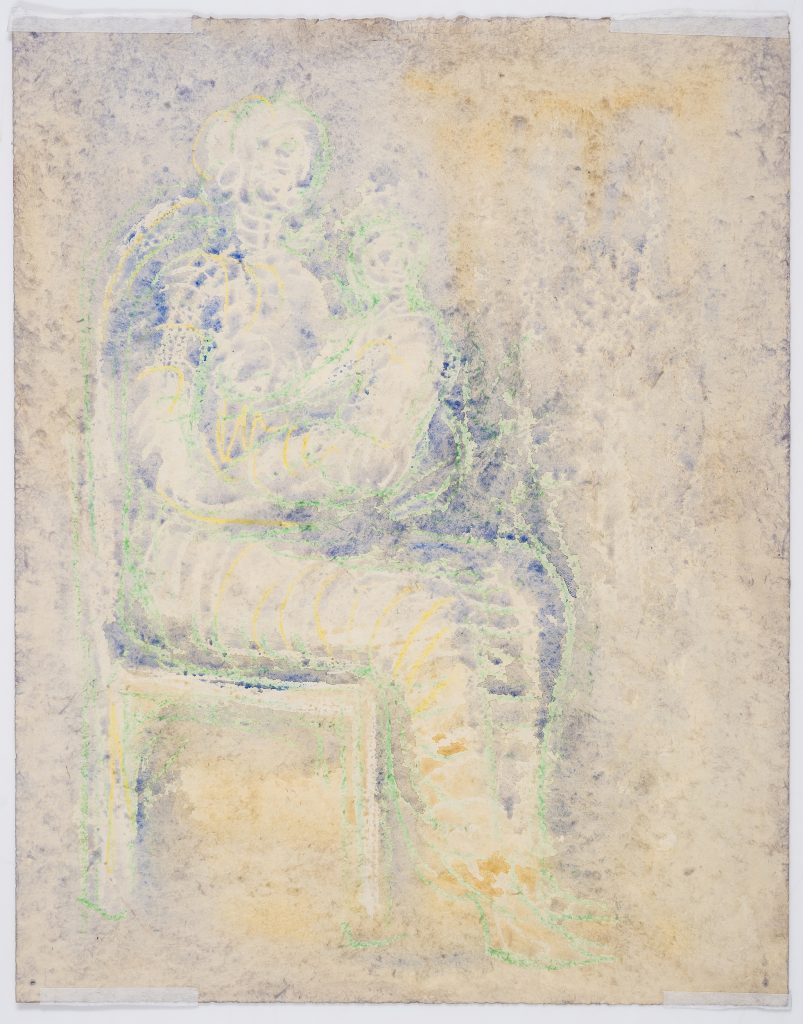Auctions
A Henry Moore Drawing Discovered at a Thrift Store Could Command $37,000 at Auction
The seller had believed the work to be "just a print."

The seller had believed the work to be "just a print."

Artnet News

A rediscovered drawing by preeminent British artist Henry Moore, bought two decades ago at a thrift shop, is coming to the auction block at a sale of British art on December 14 at London’s Forum Auctions, bearing a high estimate of £30,000 (about $37,000).
Based on its rarity, “it may achieve much more,” said the auction house.
The seller believed the work to be a print, but it was revealed during a valuation at the auction house that it is a signed drawing, with another drawing on the reverse. After two years of research with the Henry Moore Foundation, Forum Auctions authenticated the work, which will appear in a forthcoming catalogue raisonné.
The motif of mother and child is among Moore’s favorites, and, in a rare instance, it appears in the drawings on both sides of the current sheet.

Henry Moore, reverse side of Four Studies of Mother & Child (c. 1947–49). Photo courtesy of Forum Auctions.
“We are delighted to offer this wonderful, newly discovered double-sided drawing from circa 1947–49 depicting one of Henry Moore’s most recognizable themes: ‘Mother and Child Seated,’” says Alexander Hayter, Forum’s international head of modern and contemporary art.
“Discovered during a valuation, the present owner had assumed that the work she owned was ‘just a print’ and was shocked when told it was an original drawing. Unknown to art scholars, the Henry Moore Foundation conducted almost two years of research, and recently confirmed that the work is indeed by Britain’s greatest sculptor.”
The works on both sides employ a characteristic mix of ink, watercolor, and wax crayon. One side features four strongly modeled images of the motif, while the other has a more delicate, single rendition of the image in blue and yellow.
After military service in World War I, Moore attended Leeds School of Art with the help of an ex-serviceman’s grant, later attending the Royal College of Art in London. By the 1930s, he was one of Europe’s pre-eminent sculptors, but turned to drawing when he lost his Hampstead home and studio in a World War II bombing.
Moore turned his focus considerably to the subject during the war period. The death of his mother in 1944 and the birth of his only daughter in 1946 fueled a greater interest in the subject.
More Trending Stories:
A Shipwreck Off the Coast of Colombia May Hold $20 Billion Worth of Treasure
Hot! How a Backyard Photographer Captured Some of the Most Detailed Images of the Sun
Chinese Artist Chen Ke Celebrates the Women of Bauhaus in a Colorful, Mixed-Media Paris Debut
A Centuries-Spanning Exhibition Investigates the Age-Old Lure of Money
Meet the Woman Behind ‘Weird Medieval Guys,’ the Internet Hit Mining Odd Art From the Middle Ages
Conservators Find a ‘Monstrous Figure’ Hidden in an 18th-Century Joshua Reynolds Painting
A First-Class Dinner Menu Salvaged From the Titanic Makes Waves at Auction
The Louvre Seeks Donations to Stop an American Museum From Acquiring a French Masterpiece